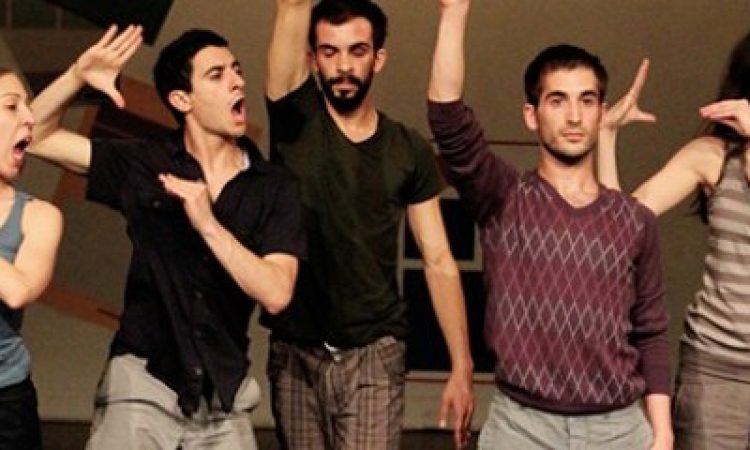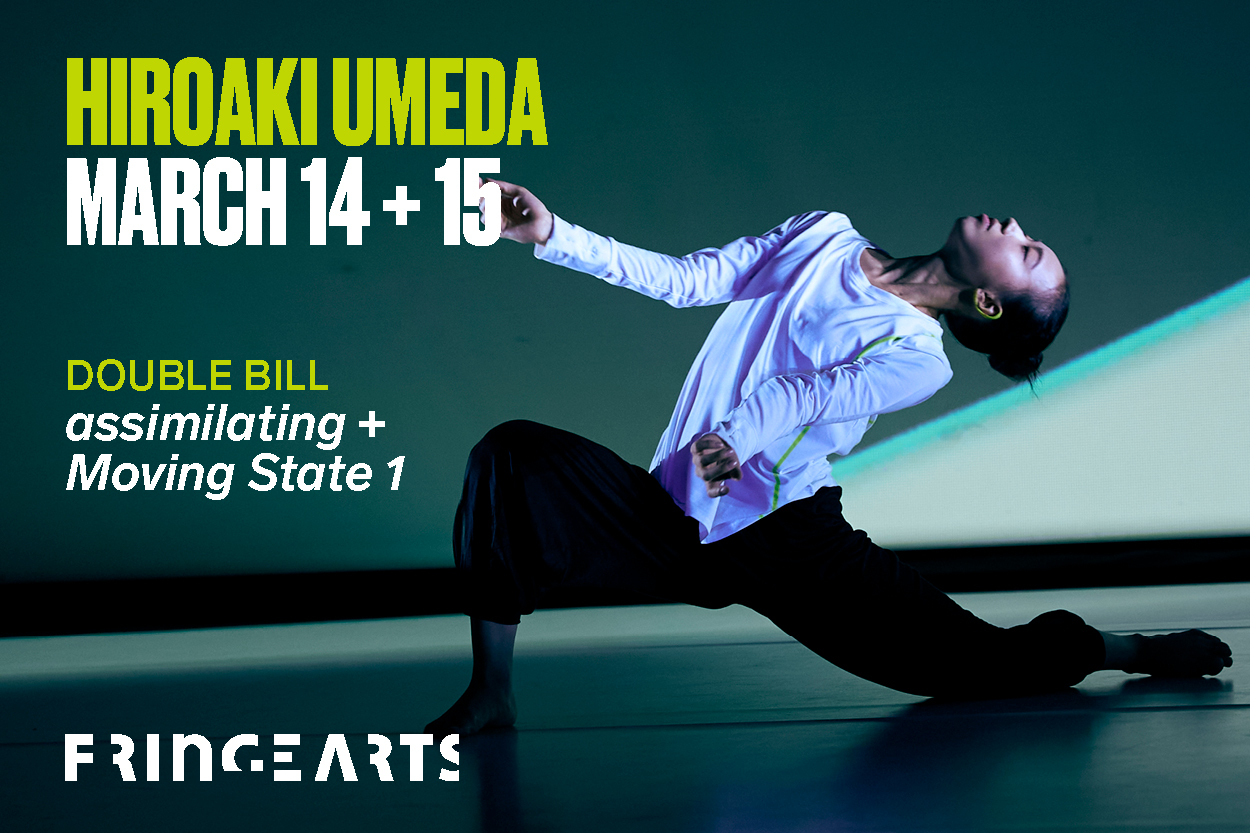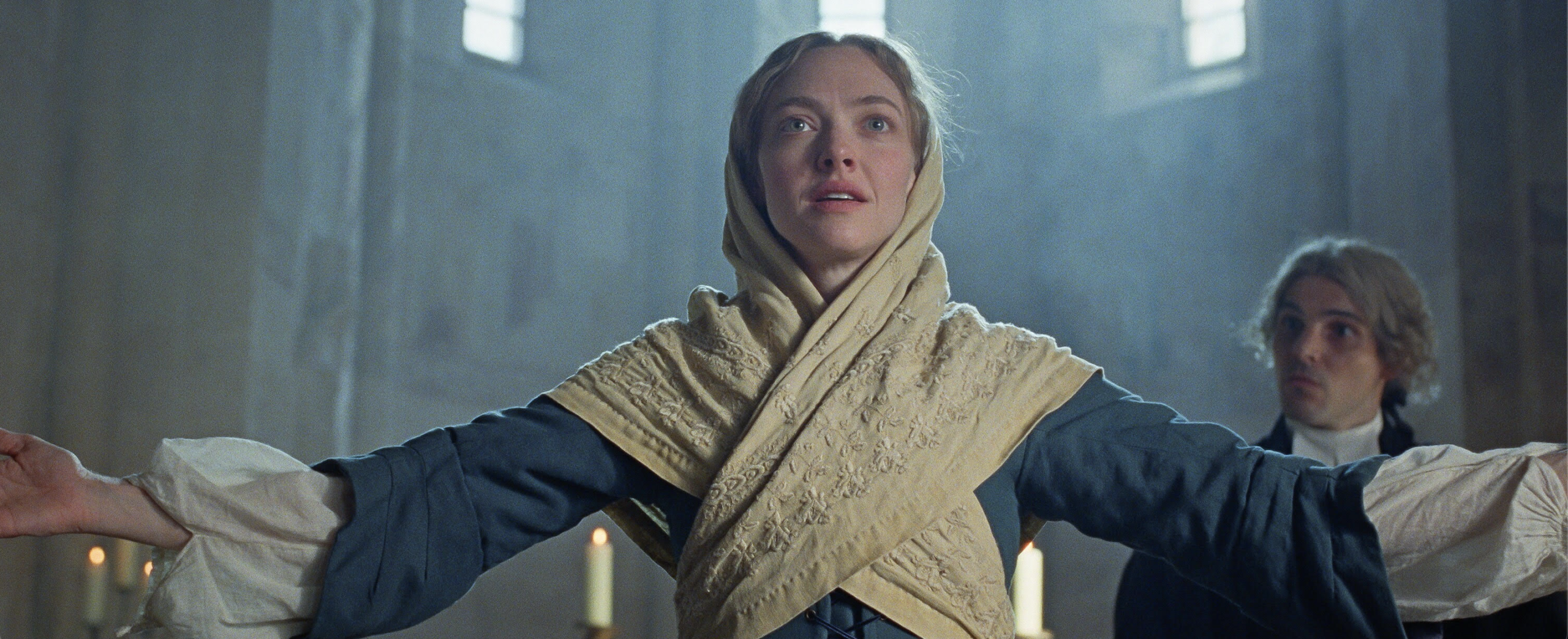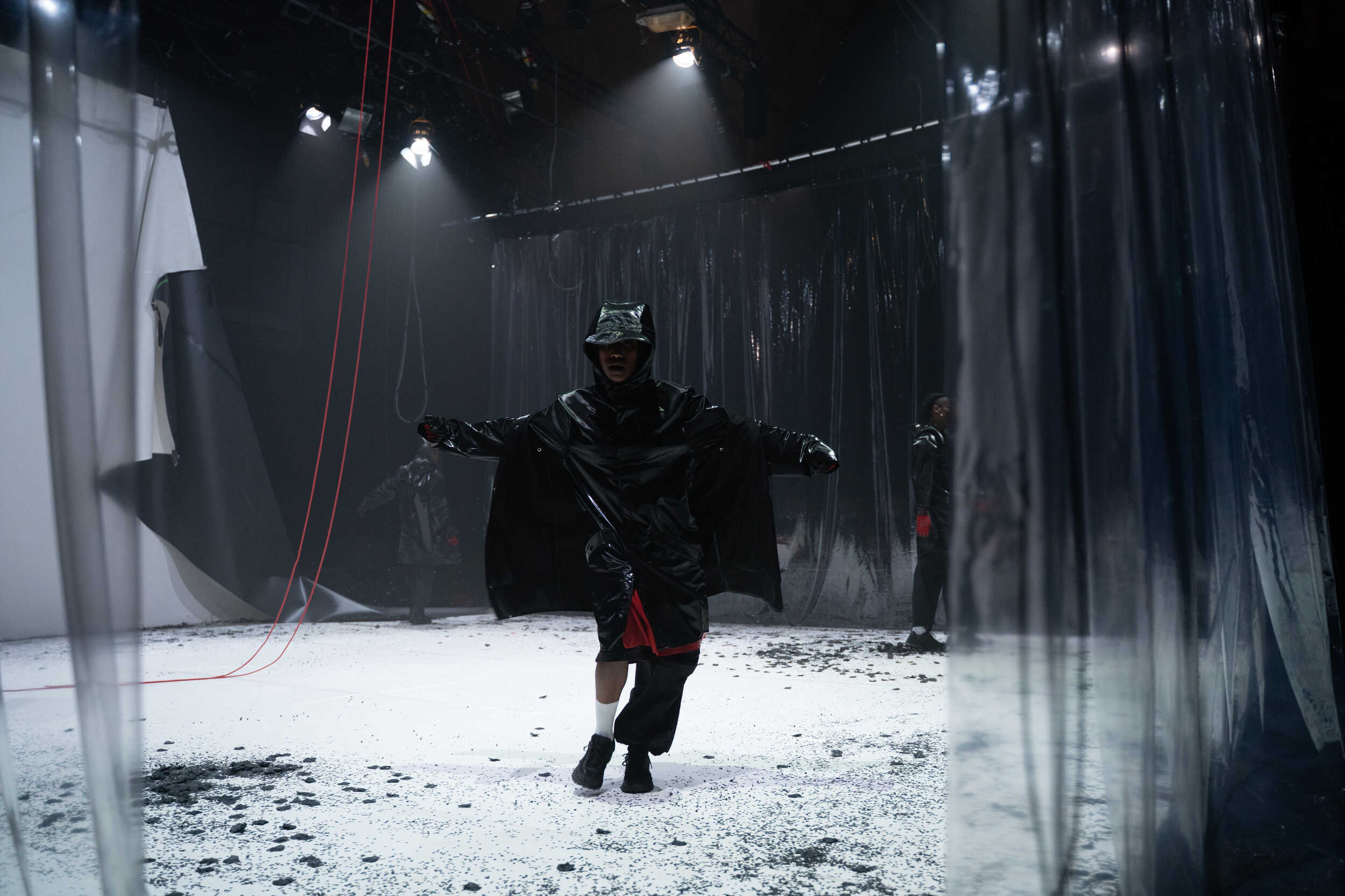Instructions: bring together audiences familiar with different art forms, and then offer them an untested product and an imported good.
The result: it’s not Starbucks.
I recently met with the masterminds of thirdbird, Dustin Hurt and Anna Drozdowski, at a local coffee shop to discuss the next incarnation of their Blind Date improvisation series and their presentation of CITY, a work by the Budapest-based dance collective, Bloom! The two are enthusiastic, opinionated, and generous, often stopping mid-sentence to offer each other the floor. Because their passion for curating is so contagious, I occasionally jumped with both feet into the fray despite my role as interviewer. My interruptions didn’t daunt them; they seemed game for anything.
Two previous thirdbird Blind Date productions at the Christ Church Neighborhood House featured improvisational duets: five movers paired with five musicians they had never performed with before. For the upcoming evenings at the Arts Bank, Hurt and Drozdowski decided to up the ante and add what they call a “third wheel.” I was educated by Schoolhouse Rock to understand that three is a magic number, that adding a third person to a two-person set-up can change drastically the dynamic on a stage or in a relationship. If making sense of a couple attempting to make sense of each other onstage is, in turns, fascinating and frustrating, a trio should create miracles or chaos. The stakes are simply higher.
The presenters talked about matching musicians to movers—a task they approach more by considering personalities than by comparing past artistic products. Improv becomes a different animal depending on how and why it is practiced (notably, next week’s programs include for the first time two former Pennsylvania Ballet principals, Matthew Neenan and Meredith Rainey) and by whom it is encountered (dance and/or music lover or the merely curious). Aware of the practice’s shape-shifting nature, Hurt and Drozdowski remain hands-off beyond the initial, intuitive mix-and-match of index cards with artists’ names. They create the couples or trios, give them a rough onstage time limit (10-20 minutes), and then allow them to negotiate their own terms.
Some of the resulting dates come to the theater with an elaborated structure, some with a loose one, some arrive in the space with no design other than spontaneity. The diverse manifestations become the message: the audience members, as well as the performers, get to sample the potentials of cross-discipline collaborative improvisation.
At the first Blind Date I attended, Beau Hancock and Rosie Langabeer began their encounter with a serenade. She played prepared piano below as he danced in the balcony. I’m not sure what they had planned, but the trajectory I witnessed—from Shakespearean-style distance to side-by-side piano bench proximity accompanied by the genuine sound of Langabeer’s laughter at a whisper from Hancock—was both intimate and satisfying.
This week I was invited to be a fly-on-the-wall during a rehearsal for one of Blind Date’s improv trios: Michael Kiley, Megan Mazarick, and Michelle Stortz. Instead of the imbalance I expected from the increase in number (two movers/one musician, one man/two women) what I witnessed was democracy at its finest. These three are choosing to produce both sound and movement in concert rather than divvying up the duties according to their artistic backgrounds. Kiley describes himself as a sound designer and composer obsessed with listening; Mazarick choreographs and directs with a distinctly postmodern sensibility; and Stortz is a yoga instructor, massage therapist and movement educator. All three have voices I envy. I am anxious to see their experiments transported to and transformed by the stage.
Besides setting up Blind Dates, thirdbird’s upcoming evenings also match Philadelphia with Budapest. Bloom! Collective’s work, CITY, was created collaboratively by the five-person group and grapples “with the dynamics of power, fear, manipulation, and faith, and the consequences of social conformity.” (Spoiler: CITY contains nudity.) In fact, Hurt and Drozdowski’s excitement upon seeing the piece in January 2011 during a presenter exchange trip to Eastern Europe sparked their joint venture of thirdbird. Now, nearly a year and a half later, having continually presented local and not-so-local artists in evenings of collaborative risk-taking, they have consummated the desire that first brought them together—to create dialogue across disciplines, geographic areas, and aesthetic backgrounds.
Having been the inquisitive and mildly awkward third wheel during a thirdbird conversation about the relationships audiences have with music, dance, and writing (my small contribution)—I can assure you that abandoning predictability and expectation, even during a coffee date, is not without reward. Ben Franklin once wrote, “All mankind is divided into three classes: those that are immovable, those that are movable, and those that move.” The matchmakers of thirdbird may be of yet another class—those moved to move others. How moved? To where? Those are questions answered only by walking into the theater.Seen & Heard 4: Bloom! Collective’s CITY + Third Wheel Blind Dates, presented by thirdbird, The Arts Bank, May 3 & 4, 8pm, www.birdbirdbird.org






